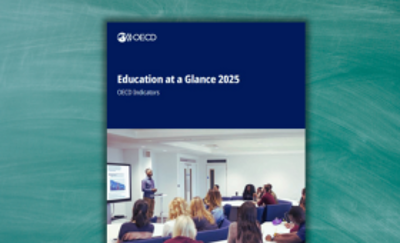
Ireland bottom of international league for investment in education
Ireland is at the bottom of an international league table for government expenditure on second-level education as a proportion of GDP, an OECD report published today has found.
In 2022, the year analysed in the OECD publication Education at a Glance 2025, Ireland invested 0.8 per cent of its GDP in second-level education, compared to OECD and EU averages of 1.7%.
Ireland has remained at the bottom of the list of OECD countries for this indicator for many years.
“Clearly Ireland is failing to prioritise education in the way that it can and should. Children and young people deserve better than this,” said ASTI General Secretary Kieran Christie.
Mr Christie said that the consequences of years of under investment in education in Ireland include large class sizes, insufficient staffing in schools, lack of resources and inadequate supports for students:
“The Government is undermining the capacity of schools to meet the needs of students, to offer them the best possible learning experiences during their formative years, and to effectively mitigate social inequalities and educational disadvantage.”
Teacher shortages
Ireland is below the OECD average for teachers’ starting salary and salary after 10 years’ teaching experience.
“In the context of Ireland’s teacher shortage crisis, this must be addressed, alongside the length of the teachers’ pay scale, the cost and duration of teacher education, and teacher workload. Students need their teachers. We must make teaching in Ireland a sustainable career for graduates,” said Kieran Christie. In fact, the OECD’s own press release states the following:
“The report underlines how essential highly qualified teachers are for high-performing education systems at all levels, and how teacher shortages make it harder to recruit and retain well-trained educators.”
Budget opportunity
Mr Christie said the report provides overwhelming evidence of the benefits of government investment in education for individuals and countries. Investing in education has a significant impact on earning potential and employment outcomes for individuals. Higher education levels are also associated with better health and increased enjoyment of life. For nations there are societal as well as economic benefits.
“In a few weeks’ time the Government will announce Budget 2026. This presents an opportunity for the Government to close the funding gap between Ireland and the rest of the world and demonstrate a commitment to the education and future lives of our children and young people,” concluded Mr Christie.
ENDS

